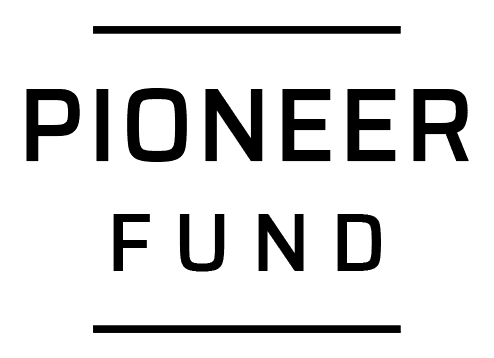Startup Spotlight: NudgeLabs
Startup Spotlight is an interview series where we ask health, fitness, and wellness startups that use Terra, to share their wisdom from their journey to success and also where they see fitness data going in the future.

In this spotlight, we connected with Magnus Liungman, CEO of NudgeLabs, a well-being platform for employees and employers that utilizes health data and coaching to improve individual well-being and performance, and in turn that of the organization.
We help enterprises or high-performing companies, like the big four tech companies, to improve what we call sustainable performance and employee retention.
We've built an invention that helps both employees and organizations. We use a combination of consumer wearables, together with our smartwatch app as well as high-volume coaching to form new habits for employees. As an employee, only two people can see your data: you and your coach. On the employer side, we anonymize and aggregate all the bio-data as well as the insights from the coaching and from the app. The smallest group we ever break it down to is 10 active users for an employer. We visualize that for the company so they can create data-powered people organizations. For example, if you're bringing back people to the office from remote working, you'll want to see how is that impacts stress, well-being, engagement, and performance. Using our data, you can do that. Or maybe you started introducing meeting-free Wednesdays and you want to see the effect? You can use our data to do that.
How did you come up with the idea?
So in 2016, I was living in London and working for a health-tech company. I realized that money didn't really make me happy and I want to do something that improves the world, so I decided to start the health tech company that I really thought could have a global impact, which was Doctrine. That went super well. Two and a half years later, as we were raising our Series B round, a few of my doctors in the office came up to me and had a proper intervention and said Magnus, you don't look well, you should take some time away from work. From that point on, I was on sick leave for seven months for burnout. After that, I became really passionate about how you can sustain high performance. I've been at McKinsey and done a 14-hour Ironman. I am a high performer, so how can I be a high performer, but in a sustainable way? So that's been the motivation.
How did you turn it into a company?
We did a concierge MVP, which is where you want to automate some features in the future, but to try it you just do it manually first. We gave out a few wearables and connected to users' web accounts on Garmin, and provided insights and recommendations using WhatsApp. And that worked well. Then when we tried to sell that product to companies, the first sales meeting I had they wanted to buy it. And based on that feedback, we raised money.
A few months ago we experimented and pivoted by adding what we call high-volume coaching into the mix, and the results were just amazing.
When we started NudgeLabs, initially, we had this idea of completely digitizing the behavioral change process. So we used wearables and our smartwatch app. Users were really happy and engaged, but we didn't see any behavioral changes in the bio-data, so we added human coaches to the service. What we use the coach for are three things. Firstly, motivation, because it's about asking questions to figure out your motivation. So starting people with motivation, really asking questions to an individual to figure out, for example, why is working out important to you? What's your North Star goal? That's one thing. The second thing is creating accountability. Say you agree with your coach that you're going to work out four times a week and you're gonna start today. You know that the coach can see what you do, and you have another session with them in three weeks time. And that really increases the chance you're going to do it. And then number three, problem-solving. So there's probably something that may be preventing you from completing workouts. And if you get help with problem-solving, by someone asking you the right questions, you can figure out: is there a way for me to counter those blockers that I have? So those are the things that the coach would do, while the app gives you insights from the health data.
Biggest challenge so far?
Our pivot earlier this year and targeting different people. After pivoting, we first launched with a big four company, a global consulting and professional services firm. We made a decision to pivot on the 26th of April and launched with this first pilot customer in early June. Committing the technology to be able to do that, that's been a super intense setting up. And, of course, making sure that that goes well.
We now have four-month user retention of 95%.
84% of users say that they have gotten a positive lifestyle change so far. We have a user rating of 4.8. out of 5. Even though it's just been four months since our pivot. We also have improved sleep compared to a control group by up to 15%, more or less based on improvements in HRV. It has taken a lot of effort to get those metrics. Another cool metric is actually, we have net user retention of 105% over the last four months. So since we have so few people leaving our service, and since users are really happy, it spread by word of mouth. So we actually have a growing user base within the pilot period, which is pretty unheard of when it comes to wellness services which typically see a rapid decline.
What is your focus now?
So we've started the process to become wearable agnostic using Terra. Since there are so many of our users who already have wearables, we want to be able to serve them so we've started that integration. Then it's also about really figuring out go-to-market fit. So we've initially niched ourselves towards professional services, really the high performing organizations of the world. And basically, continuing to nail go-to-market fit: how do we sell our product effectively?
Our mission is to make well-being easy, even as a high performer, that is what we want to achieve.
I'm more mission-oriented than vision-oriented. We want to scale our mission and just give the opportunity to as many people as possible.
What do you think are the current gaps in the space today?
The issue today is that all the utilization, engagement, and retention metrics are just ridiculously low. User utilization of most well-being initiatives that work is between 1% - 10%. Retention or utilization, whatever metrics you look at. If you have therapy providers, we see that only between 1% - 3% of your employees will use that on a yearly basis, whereas typically 10% - 20% may need it. You also have mental health platforms that have a weekly engagement of around 6%. Meditation apps typically have 30-day retention of 6% in a B2B setting. So I think that's one. The second gap today is that in organizations, the people side of those organizations, have no idea what works for wellness. They have no ability to sort of calculating ROI based on these kinds of initiatives. And the third I would say is that leaders are really important enablers for sustainable, high performance, but there aren't any good solutions out there to work with a leader's habits. So you may do some leadership training, perhaps once every two years. What happens in between? Who coaches the leaders to enable sustainable performance for their team? So I think those are the three things that I feel are currently missing.
How are you using health data?
So we use it in two different ways. To start with for the employee, it's so that the individual can actually for the first time really understand what their well-being is. But also to be able to see if you make changes, how does that impact my objective well-being? So in my case after using our platform, I see that my sleep quality has actually increased and the bio-data shows that my well-being is higher now than before. And then for the employer, it's really about creating real-time insights into the well-being of the organization because engagement surveys have such a low response frequency and you can't do them that often, so just being able to see the impact for the organization over time. So we use the data to be able to sort out power experiments. If we do X, does that have an impact? Say we're an organization that, as I mentioned, wants to test if meeting-free days have a positive impact on stress, performance, engagement, and well-being. So when we start with this organization, we then have a great control group with bio-data. So we can compare and do it almost like a controlled trial. From my viewpoint, health data allows for feeding behavioral change. So for us, it's like an enabler.
What do you see for the future of this space?
We do want to eventually move towards more automation and digitalization. For NudgeLabs, we went wrong pre-pivot and many companies are going wrong with this view that you can start with just automating, you need to first get the results and the metrics and have an impact. The type of experiments we're going to set up is: can we maintain our amazing metrics while automating this piece? If not, then we're not going to automate it. And then we're gonna try with something else. So like starting from semi-automated towards more automation. For the second piece, I'm hoping that we will be able to have really great data to correlate these types of initiatives with performance even better because well-being is not really perceived as being a problem. A lot of CEOs say that, well, my employees are the most important asset that I have, but they are not acting in line with it. So I'm hoping that as we can sort of calculate ROI for the whole industry and connect it to performance, that is going to increase employers' incentive to really see it as a strategic topic rather than an HR topic.
What do you mean by automation?
So how can we sort of reduce the coaching time per user whilst maintaining 95% per month user retention? It doesn't need to be automation, necessarily. That's one piece of it. I think another piece is just changing processes or experimenting with different types of implementations. So I think it's bigger than automation. We want to reduce the marginal cost and reduce the price point to be able to offer this to, you know, not just the Mackenzies of the world, but also to healthcare providers, nurses, or doctors. They might not be able to afford what we are doing today, but in the future, they might.
Anything else you'd like to mention?
We also have a case study on the impact of our initiatives, check it out here. But yeah, love what you're doing at Terra and looking forward to having your service enables a wearable agnostic solution for NudgeLabs.





